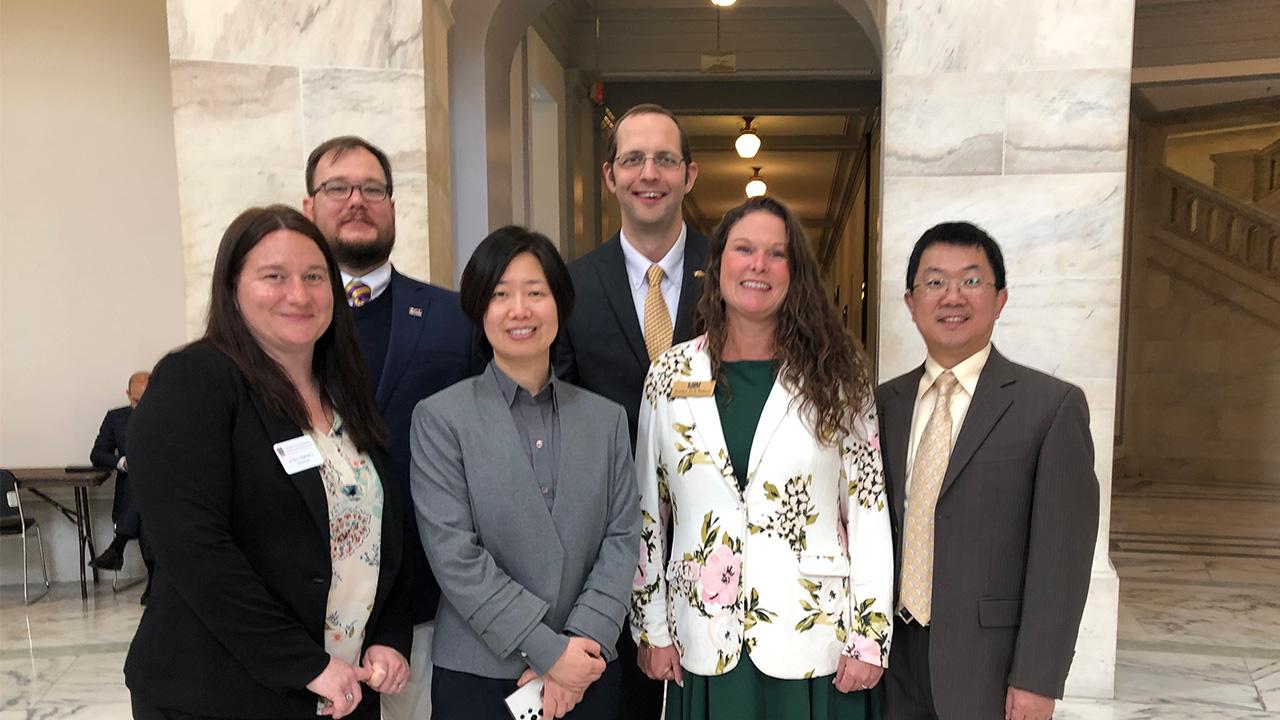
Ferguson leads delegation supporting ag research in Farm Bill
$1.3 billion included for funding agencies
Louise Ferguson organized a two-day visit to Washington, D.C., for fellows in the Leadership Academy of the American Society of Horticultural Science.
Ferguson is a professor of Cooperative Extension in the UC Davis Department of Plant Sciences and a long-time leader in the ASHS. During the recent trip, she and Leadership Academy fellows met with members of the United States Congress to explain the importance of $1.3 billion in research funding that is included in the 2023 farm bill currently under consideration.
The fellows, from all over the U.S., visited legislators and staff. They presented statistics gathered from the U.S. Department of Agriculture and other sources: “For every $1 invested in publicly funded agricultural and food research, $20 in economic activity is generated. Specialty crops (fruits, vegetable, and nursery) generate $60 billion per year at the farm gate and even more when considering retail sales. Specialty crop exports earn the United States $20 billion per year from abroad,” ASHS Associate Sally Murphy wrote in a letter the fellows gave to each person with whom they met.
“Every five years, Congress passes legislation that sets national agriculture, nutrition, conservation and forestry policy, commonly referred to as the ‘Farm Bill,’” according to the Senate website.
This year’s farm bill calls for $1.4 trillion in federal spending. Money authorized by the bill flows through agencies that, in turn, support work at universities including UC Davis. Those agencies include the Specialty Crop Research Initiative (SCRI), the Agriculture and Food Research Initiative (AFRI), the Organic Research and Education Initiative (OREI) and others. This research supports the economic health and competitiveness of the American agricultural sector, and the physical health of Americans through the production of healthy food, the ASHS fellows argued.
Leaders learn to be advocates
Ferguson started the Leadership Academy program at ASHS three years ago; the Washington delegates drew from the first two classes. “We’re training people to be leaders in agriculture and also advocates for our society, which focuses on research, teaching and practicing horticulture,” Ferguson said.
Leadership fellows on the trip were faculty members Jeb Fields, of the University of Louisiana; Matt Bertucci, of the University of Arkansas; Julie Campbell, of the University of Georgia, Mengmeng Gu, of the University of Colorado, and Heather Kirk-Ballard and Wusheng Liu, of the University of North Carolina.
Related links
Learn more about the American Society of Horticultural Science.
Media Resources
- Trina Kleist UC Davis Department of Plant Sciences, tkleist@ucdavis.edu, (530) 754-6148 or (530)601-6846
